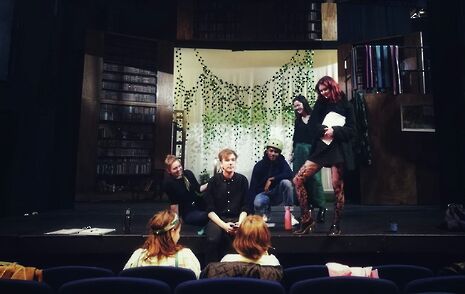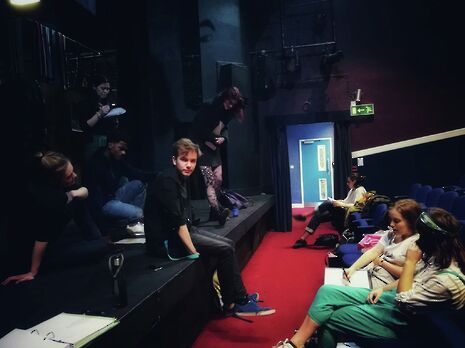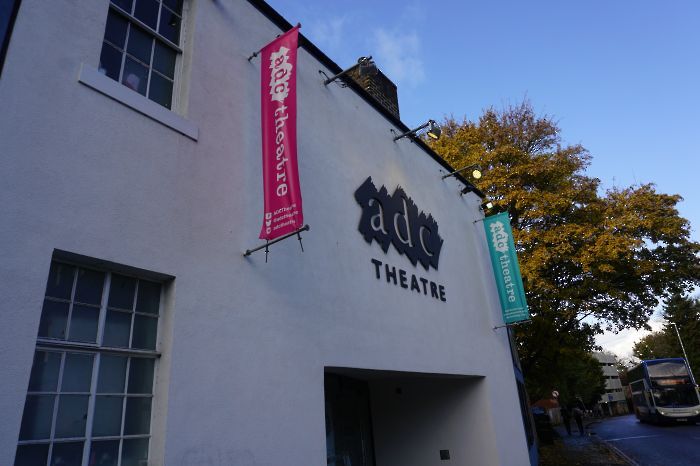The Resistible Rise of Arturo Ui preview: Brecht’s satirical allegory of Hitler’s rise to power
Varsity Theatre chats to Aaron Kilercioglu about his surprisingly irresistible take on Brecht’s The Resistible Rise of Arturo Ui

Brecht’s The Resistible Rise of Arturo Ui is this week’s ADC main. A satirical allegory of Hitler’s rise to power, Brecht reimagines events as a small-time Chicago gangster’s takeover of the city’s greengrocery trade in the 1930s. We spoke to director Aaron Kilercioglu about his reasons for staging this play…
So, first of all, why this play? What drew you to it?
Choosing any one reason why I wanted to stage ‘The Resistible Rise of Arturo Ui’ is a tricky task. I think this is a fascinating play, for cast, crew and audience alike. As with any Brecht, there is a certain connectedness between audience and actors that few other practitioners have been able to emulate. Although modern demagogues or totalitarian governments are not in the same league as Hitler’s Reich, I think that particularly in 2017, the play is a reminder of the banality of the monsters who perpetrated the crimes of the 1940s and the possibility for such characters to rise to power if we do not stop them.
“In theatre you spend weeks working towards the one take that matters: the show”
Diversity in theatre has been much discussed recently, particularly with so many male-dominated shows. You chose to genderswap several characters -- how did this affect the production?
The object of Brecht’s play is not to cast actors who physically resemble the people their characters are based on; the historical allegory serves the purpose of saying something about humanity as a whole, and not just a group of horrible individuals in the 1940s. When we were casting, we tried to reach out to BME and female actors, as well as students from Anglia Ruskin, and in my opinion, casting BME and female actors in parts based originally on white men serves to underline the universally human message of the play.
So what do you want the audience to take away from the show?

Even though the objects of Brecht’s satire are dead, his message lives on. What does live on is the low-level brutality of police regimes, as does the ever-creeping danger of forgetfulness. Of forgetting these horrors and atrocities, and forgetting that everyone is individually responsible to try and fight them. This play attempts to jolt the audience out of a position of acceptance of the world as it is, and to suggest that things could in fact be different, and I hope we achieve that.
“I’ve felt this play constantly building - every day was more intense than the last, and I’m so excited to see it on stage”
And finally -- you’re more well known as a film director, and this is your first experience of directing for stage. How have you found the transition from film to theatre?
In film, you are able to frame each moment individually. You can have multiple takes for the same shot, frame it from different angles, reshoot. In film you spend months editing after the shoot. Though there is conceptual overlap, framing, sound, lighting - the day-to-day is very different. In theatre you spend weeks working towards the one take that matters: the show. In a way, I’ve felt this play constantly building - every day was more intense than the last, and I’m so excited to see it on stage.
Brecht’s The Resistible Rise of Arturo Ui is on at the ADC Theatre from 7th - 11th November at 7.45pm
 News / Uni Scout and Guide Club affirms trans inclusion 12 December 2025
News / Uni Scout and Guide Club affirms trans inclusion 12 December 2025 News / Cambridge study finds students learn better with notes than AI13 December 2025
News / Cambridge study finds students learn better with notes than AI13 December 2025 News / Cambridge Vet School gets lifeline year to stay accredited28 November 2025
News / Cambridge Vet School gets lifeline year to stay accredited28 November 2025 Science / Did your ex trip on King’s Parade? The science behind the ‘ick’12 December 2025
Science / Did your ex trip on King’s Parade? The science behind the ‘ick’12 December 2025 News / Pembroke to convert listed office building into accom9 December 2025
News / Pembroke to convert listed office building into accom9 December 2025









